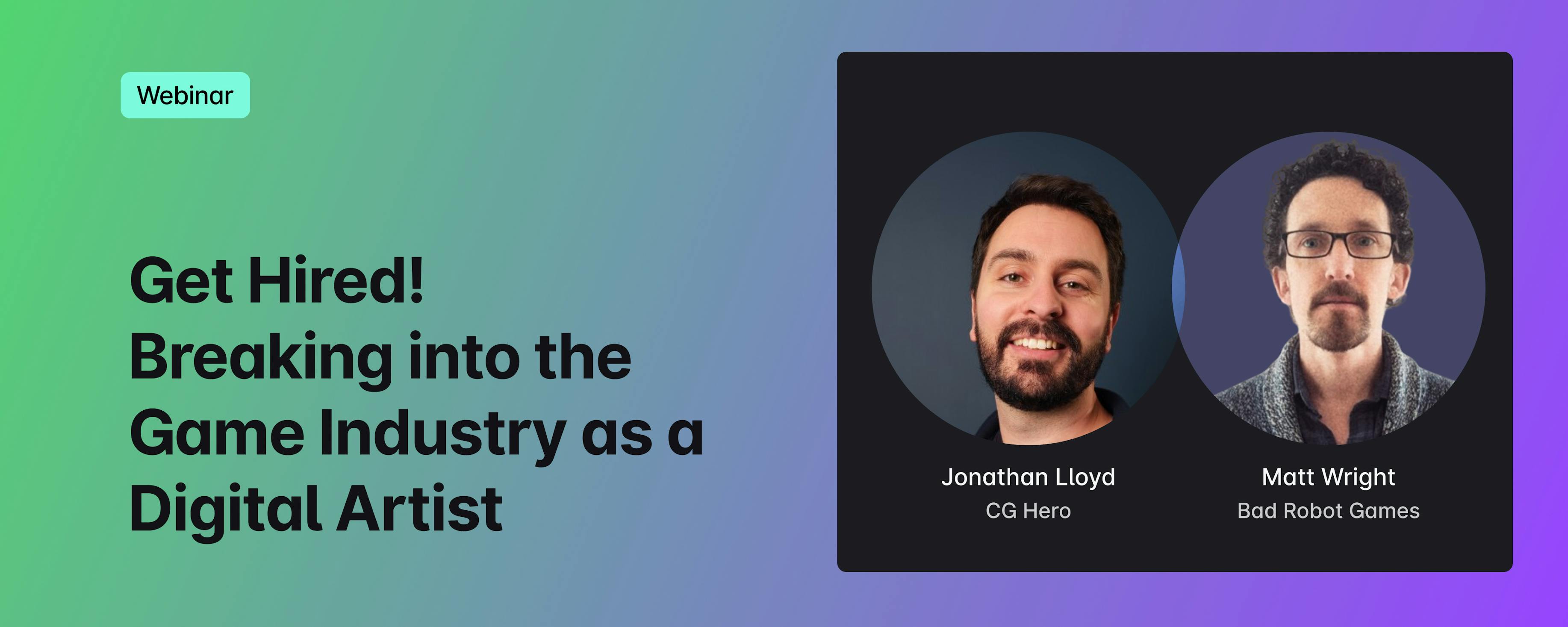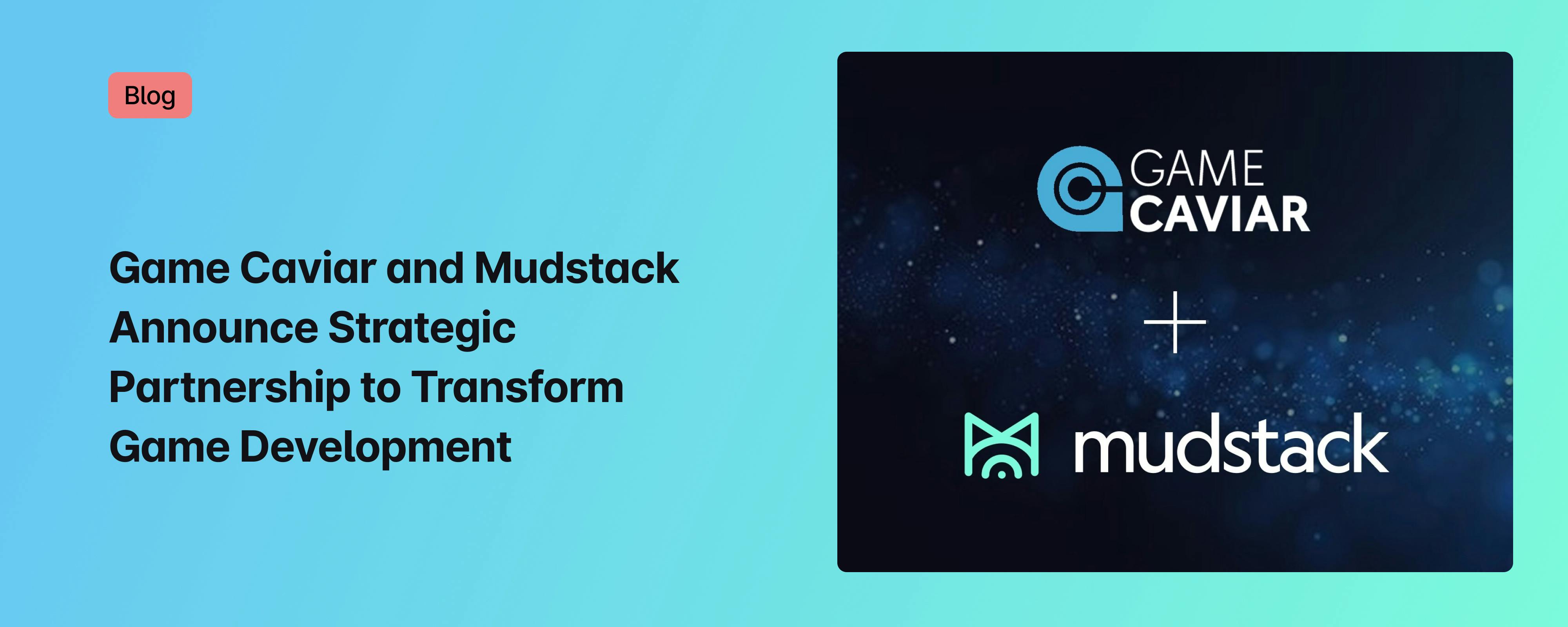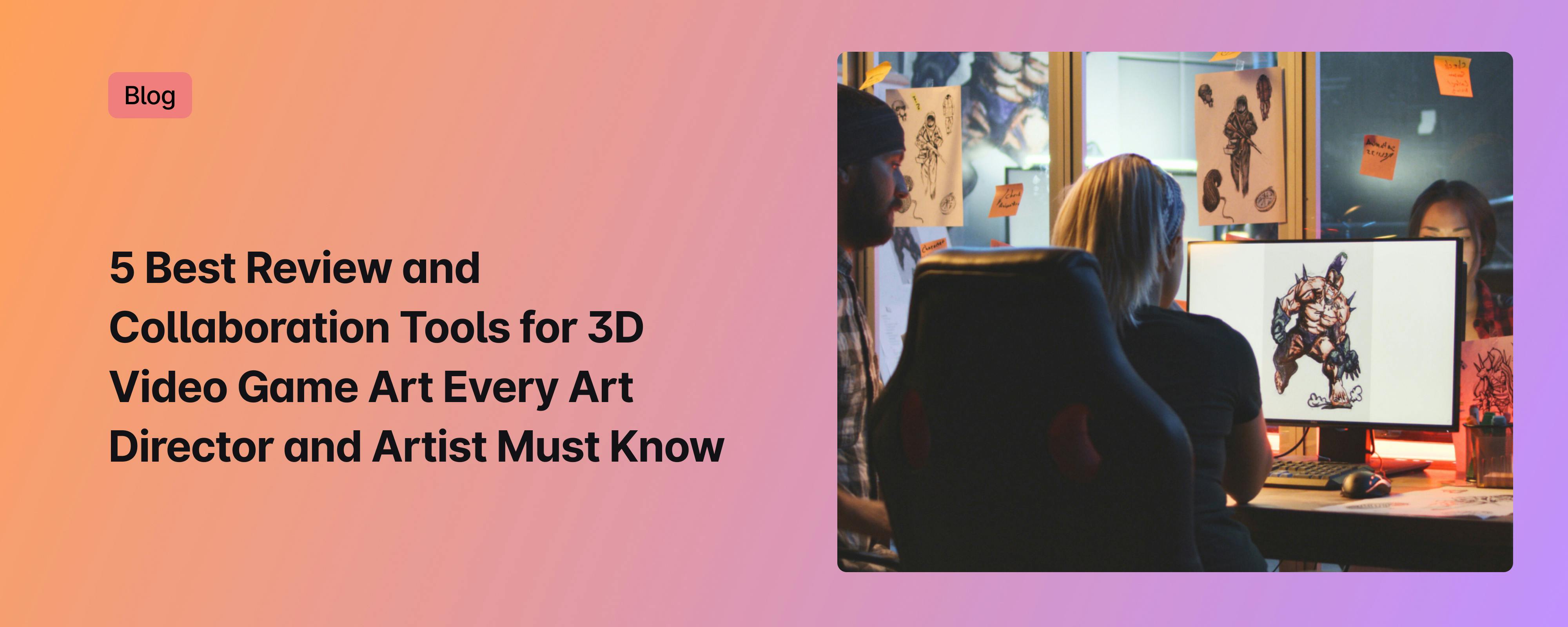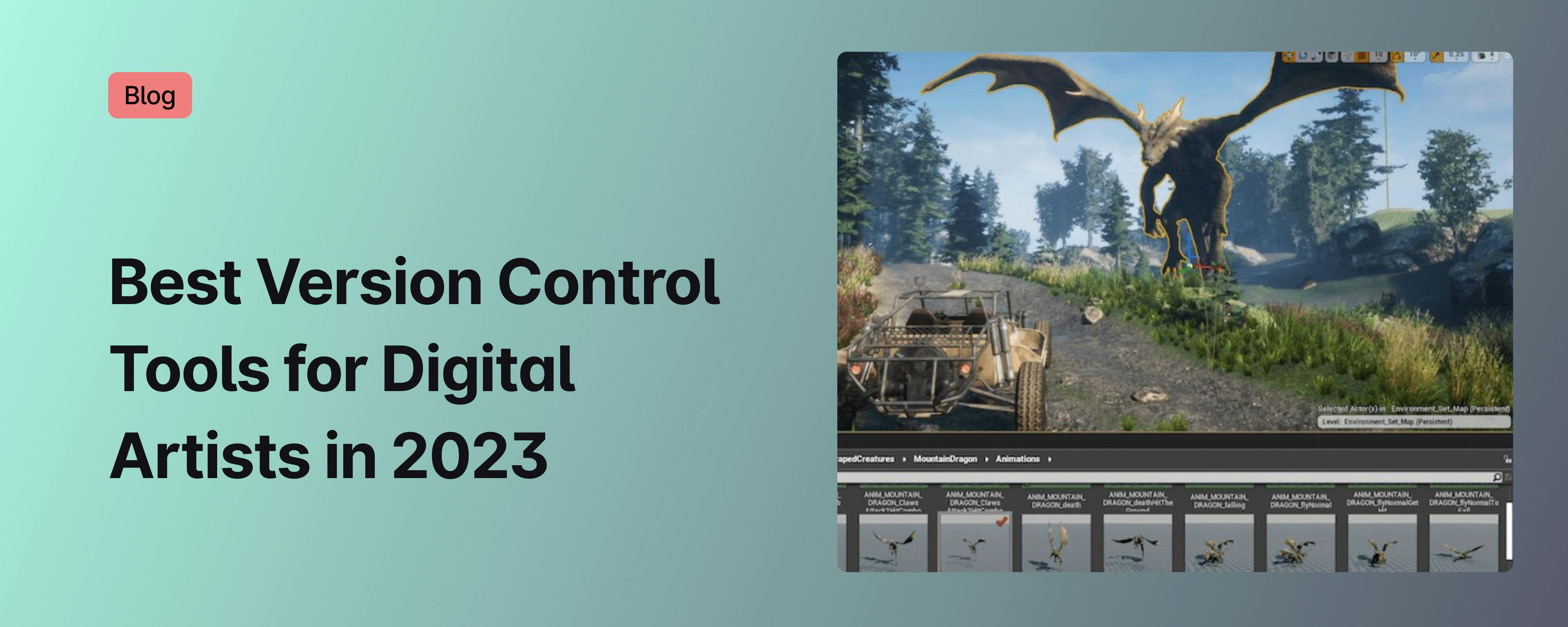Get Hired: Positioning yourself for success in the game industry
Advice for Digital Artists from Jonathan Lloyd from CG Hero and Matt Wright from Bad Robot Games


Digital art has become an integral part of the game industry. Aspiring artists looking to break into the world of game development often wonder how they can position themselves for success. To answer this question, we spoke with Matt Wright, the Environment Art Director at Bad Robot Games, and Jonathan Lloyd, the Founder, and CEO of CG Hero. In this blog post, we'll share their insights on how digital artists can set themselves up for success in the gaming industry. Whether you're a beginner or a seasoned professional, their advice is sure to be valuable.
Stand out and Be Yourself to Succeed in the Gaming Industry
To get a job in the gaming industry, it's key is to have a strong portfolio that shows your best work. It doesn't have to be a lot of work, but it should be work that showcases your unique style and interests. Also, be honest about why you want to work at the company and tailor your cover letter and resume accordingly.
When it comes to the interview process, be relaxed and have a nice conversation with the person interviewing you. It's important to be genuine and show your passion for the industry. Remember, it's not just about your technical skills, but also about your personality and work ethic. So, be yourself and show why you would be a valuable addition to the team.
If you're an artist who wants to break into the gaming industry, having a portfolio that showcases your skills and experience is essential. However, according to industry experts, there are other factors that you need to consider when looking to connect with game studios.
Building games is a team sport. Demonstrate you are a team player
Demonstrating your passion and energy for the gaming industry is crucial. You can do this by collaborating with others and working on smaller scale projects together on platforms such as itch.io, Mod DB, and Discord. This will show recruiters that you have excellent interpersonal skills and can work effectively in a team.
It's vital to be able to listen and work well as a team player. Even if you have an outstanding portfolio, if you lack the necessary interpersonal skills, recruiters may hesitate to bring you on board.
The industry needs more specialists
Specialize in a particular area of expertise. Recruiters are searching for individuals who are experts in their field, so you should focus on a specific area, such as character animation, environmental design, or sound effects, and showcase your comprehensive understanding of the entire process from creation to handoff. For instance, artists proficient in Houdini and Blender are in high demand today, as well as environment artists that specialize in vegetation.
It's essential to experiment with different areas of specialization to find your niche. Once you've discovered your area of expertise, you can create a portfolio showcasing your skills and experience in that field. With over 300,000 new jobs available in the gaming industry each year, plenty of opportunities are available.
Show Your Process
In addition to showcasing your final products, it's also important to show the process behind them. This will give potential employers a better understanding of how you work and how you can contribute to the team. Include video content and in-game footage to demonstrate how your work fits into the project as a whole.
Focus on Quality Over Quantity
It's better to have a few high-quality pieces that showcase your skills and process than a large number of beauty passes. Choose two or three projects that you're passionate about and go deep into the process, showing your thought process and everything that went into creating the final product.
How Important is Industry Experience in Evaluating Candidates?
When it comes to evaluating candidates, industry experience is vital, depending on the role being applied for. For instance, if the opening is for a principal artist, an applicant with only two months’ experience may not be the right fit. However, for roles like an associate or junior artist, fresh out of college, limited experience is not much of an issue. In the game industry, the number of years of experience is not always a perfect indicator of competence.
Candidates Positioning Themselves During Interviews
Less experienced candidates can position themselves for interviews by demonstrating continuously learning and effort to grow industry specific skills. A candidate that has been working for five years, but not improving, may be less appealing than one who has only been in the industry for a year but has shown evidence of constantly updating their skills. Video game technology moves fast. You need to keep up!
The good thing about the industry at present is that it is going through a maturity phase where there is an increasing demand for talent. This offers more opportunities for people to join the industry, even as specialists, with lower risk for studios.
Passion, energy, and a willingness to learn are essential attributes for a candidate to possess. Hiring managers are keen on de-risking their hiring process, and a bad hire could be very expensive. Studios are looking for people who can deliver a project on time, and have a positive attitude towards their craft. A less experienced candidate that has these attributes can be an excellent addition to any team.
The Importance of Education in the 3D Industry
Education plays a significant role in the 3D industry, especially for those who are just starting. Having an education or a university degree shows that a person can stick through the development process and that they can be committed. Some individuals may need the support of instructors, tutors, and peers to help them succeed.
Commit to your craft. Teaching yourself is more practical than ever.
The internet has made it easier for individuals to learn on their own. There are countless resources available online, such as YouTube tutorials and Udemy courses. Some driven individuals, like a 16-year-old boy who taught himself coding during the pandemic, don't necessarily need a university education to get a job in the industry. However, dedication and motivation are key, as the industry requires repetition, constant learning, and correction.
The game industry is becoming more complex, and it takes a lot of time to learn all of the processes. Working on projects with a group of peers and getting feedback is crucial for developing not only technical skills but also teamwork and collaboration skills. Ultimately, individuals must decide for themselves whether they need the structure of a university education or if they can learn independently. It's all about dedication and commitment to the craft, whether you're studying at a university or learning on your own.
Tips for Artists to Stand Out in the Competitive Industry
It is a challenge to differentiate oneself from other artists in the industry. Sharing knowledge with others by creating tutorials, posting on Discord, and helping out in other ways can make a huge difference in getting noticed. Employers want people who can push the team forward, and sharing knowledge is a great way to demonstrate that quality.
I love to see somebody educating, and wanting to educate other people. They're not getting anything out of it, right? But they wanna share that knowledge.
Get specific with your art and develop a style
Building something that can plug and play with a specific studio’s style and DNA can go a long way. Employers are looking for unique styles that can make their games stand out. Fortnite is an excellent example of a hyper-stylized game with a unique style that is immediately recognizable.
Mudstack is the only asset management and collaboration platform custom-built for game studios and digital artists.
Mudstack is dedicated to improving asset management and collaboration together. You can join our Discord channel to speak directly with our product team or schedule a demo to show us your art production pipeline and see our software in action.



